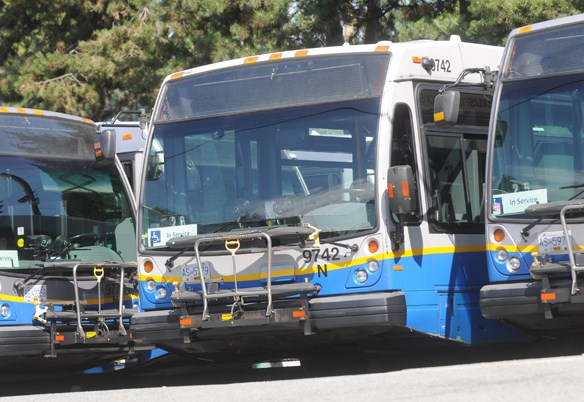“Emotion will trump facts every time.”
— Keith Baldrey, North Shore News, Feb. 11, 2015
Nine days after Global BC’s chief political reporter compared the current transit plebiscite campaign with the one that ended with voters axing the HST in 2011, North Vancouver resident Mike Barrenger outlined the confusion shared by many Metro Vancouver voters.
In essence, both men made a plea for reasoned consideration of the facts surrounding the $7.5-billion transportation and transit plan proposed by TransLink’s Mayors’ Council.
In his Feb. 20 letter to the editor (Transit Plebiscite: Vote Yes or No but Base it on Facts), Barrenger wrote, “Should we make this important referendum decision on the basis of incomplete and inaccurate facts? Absolutely not.”
And therein lies the reason for the growing heat being generated in the campaign — what are the facts?
Remembering the 16-year history of TransLink and the 14-year history of broken promises by the B.C. Liberals we see little to persuade us to trust that the plebiscite language, as amended by Transportation Minister Todd Stone, is anything more than politically tweaked wording on a piece of paper.
The long-standing reasons for my distrust are many and still not as complete as Mr. Barrenger deserves them to be. Nonetheless, here are a few of the most important issues voters need to have addressed if they are to make an informed decision on their mail-in ballot:
The first few jump right off the pages of a side-by-side comparison between the mayors’ wording and the final version approved by the minister:
The mayors’ version called the vote a referendum on its proposed 0.5 per cent increase in the sales tax to be dedicated to the plan.
Stone not only altered “referendum” to read “plebiscite” he removed the words “independent audits and public reporting” from the question. Why?
To use Baldrey’s analogy, the HST vote was binding; yet despite all the rhetoric flying out of the Yes side, the only thing certain about the minister’s version is that, should the vote go his way, you’ll get an increase to the sales tax. But wait! That isn’t even a sure thing because the minister changed its name to read “a new 0.5 per cent Metro Vancouver Congestion Improvement Tax” — is that because it’s easier to manipulate a congestion or carbon tax than the PST?
Next, Stone omitted “tunnelling along Broadway” in favour of the fuzzier term “rapid transit” and, similarly, changed “Build light rail transit to connect Surrey…” to “build rapid transit…” Why?
To leave plenty of room to substitute still more overly-expensive SkyTrain projects to be built by SNC-Lavalin – the corporation that’s challenging serious charges laid by the RCMP regarding its overseas dealings?
Then there’s the Compass Card.
Aimed at saving an annual $7 million in fare evasions (buzzer.translink.ca/2012/02/the-costs-of-fare-evasion/) we were told Cubic’s system would cost $100-million. But as happens too often in this walk-all-over-us province, 100 soon became 171.
Today, $171M still not being enough for the San Diego company that specializes in “military defense equipment and fare collection systems,” the cost sits at over $190M. That’s 27 years of lost fare revenue before we break even. Why? Did none of our politicians think of ignoring past and present lobbyists and putting projects to a fair tendering process for a fixed-price contract?
For North Shore readers – $75 million of those dollars would buy three new SeaBuses, leaving $115 million for a revamped Taylor Way intersection and other regional needs.
Now let’s talk “improved” congestion:
The Expo, Millennium and Canada Lines reduced congestion, right?
Please don’t shout; it’s rude.
If efficient public transit systems prevent congestion, the City of London I left in 1956 should have been a beacon to the world.
If transit was the be-all and end-all, why did traffic flow so smoothly during Vancouver’s four-month bus strike in 2001?
The facts show that the root cause of congestion has many faces — uncontrolled growth; failure to co-ordinate construction projects; developers’ carts put before local infrastructure horses, lack of emergency controls and designated alternate routes in the event of major obstructions, out-of-date traffic-light sequencing, inflexible work schedules that cause daily peak rush hours – all play a part in creating congestion.
Some interesting discussions of congestion issues and deterrents can be found at: roadpricing.blogspot.ca/2013/02/10-years-of-londons-congestion-charge.html and by Googling “Central London: congestion charging impacts — sixth annual report.”
Finally, only because full commentary would be book-length, it is well worth considering an answer given me by Patrick Condon, a University of British Columbia professor with more than 25 years of expertise in sustainable urban design.
“The plebiscite,” Condon said, “is a terrible idea.
“By foisting this on us, the province has abrogated its responsibility. It is the province that runs TransLink, not the mayors and it has been the province that has consistently chosen expensive transit systems — the Millennium, Canada and Evergreen lines — based on SkyTrain when local authorities, again and again, have favoured much cheaper light-rail systems,” he said.
Explaining that those poor choices mean TransLink must pay for them “each and every year for decades,” Condon concluded. “It is these debt-servicing costs that are contributing greatly to the need for the additional taxes that are now the subject of this plebiscite.”
How true.
Elizabeth James can be reached via email at: rimco@shaw.ca
What are your thoughts? Send us an email by clicking here.



